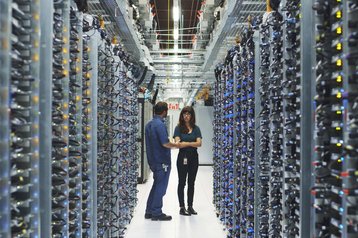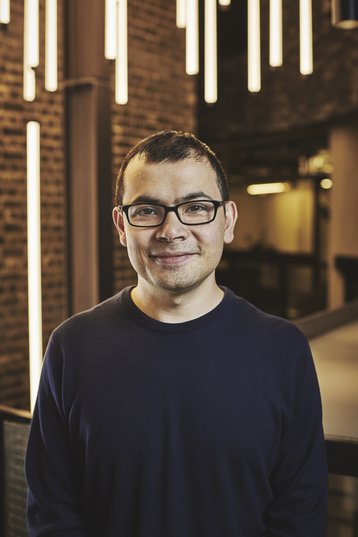Google DeepMind AI system has been used by the company to achieve significant reductions in power consumption in some of its data centers.
Google’s advanced artificial intelligence subsidiary revealed that the savings translated into a 15 percent improvement in power usage effectiveness (PUE).
Artificial intelligence for sustainability
DeepMind co-founder Demis Hassabis told Bloomberg that DeepMind was put in control of parts of Google’s data centers to reduce power consumption by manipulating computer servers and equipment such as cooling systems using its deep learning algorithms.
“It controls about 120 variables in the data centers. The fans and the cooling systems and so on, and windows and other things,” Hassabis said. “They were pretty astounded.”
Google used 4,402,836 MWh of electricity in 2014, a significant proportion of which was spent on running the company’s sprawling network of data centers that power everything from its ubiquitous search engine, to its Maps application, YouTube and, of course, the Google Cloud Platform.
The DeepMind system managed to reduce power usage in select data centers by several percentage points, Hassabis said, “which is a huge saving in terms of cost but, also, great for the environment.”
Further improvements on the system are underway, not only because it automatically improves as time goes on, but because the company may put additional sensors into its data centers to fill in the blanks in areas where the AI currently lacks information, Hassabis said.
Artificial intelligence means more power
The news is the latest in a string of high profile announcements regarding DeepMind, a London-based startup Google bought in 2014 for £352 million (~$600 million).
DeepMind says it “combines the best techniques from deep learning, reinforcement learning and systems neuroscience to build powerful general-purpose learning algorithms.”
The subsidiary is perhaps best known for having developed the AlphaGo algorithm that successfully beat Lee Sedol at Go, becoming the first program to beat a professional human Go player without handicaps on a full-sized 19×19 board.
This announcement, which sent shockwaves through the AI community which believed the achievement was still years off, is of particular interest due to the extremely high number of potential moves in a game of Go.
With 2.08168199382×10170 possible moves, a sheer ‘brute force’ approach of looking at every potential move and choosing the best one is virtually impossible.
Instead, AlphaGo had to rely on what DeepMind describes as ‘intuition’, after analyzing every publicly available Go match and playing itself again and again until it understood what a good move was.
Hassabis also noted a crucial difference between his algorithm and that of IBM’s Garry Kasparov-beating Deep Blue chess program.
He told PC Games: “The difference between AlphaGo and Deep Blue is that Deep Blue was programmed directly with knowledge about chess, whereas AlphaGo was programmed with the ability to learn that knowledge, which is much more powerful in our opinion because in theory it could learn some new domain if you gave it different data - that’s what we’re currently exploring now.
“The next stage is: can we now use that in other real-world domains and do these really cool things that will benefit the world? That’s the two-pronged attack, really.”
DeepMind’s algorithm has also learned to play various classic video games, including Atari Breakout, with the program again not being told how to play, or being specifically designed for that use.
Elsewhere at Google, DeepMind is thought to have been used to improve Search, image and voice recognition, and perhaps other areas of the company’s vast business.
DeepMind Health, meanwhile, drew attention and criticism for its access to UK National Health Service patient data, which it hopes to scan for patterns and trends that could help predict kidney issues and degenerative eye conditions.
DeepMind, which recently moved into Google’s new £1bn King’s Cross headquarters, is just one part of Google’s heavy investment in artificial intelligence, with the technology giant opening a new machine intelligence research group in Zurich last month.
Improvements in AI and subsequent savings on data center costs could prove crucial for Google’s efforts to compete with Amazon Web Services and Microsoft Azure.
Since putting Diane Greene in charge in November 2015, Google has made aggressive statements about its place in the industry and its hopes for high growth. Whether this pans out remains to be seen.


